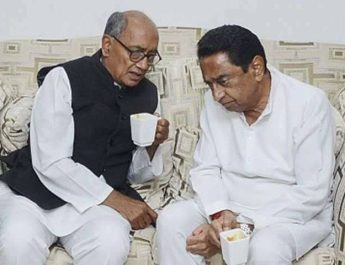From Our Bureau
NEW DELHI: The Supreme Court on Tuesday advanced the idea of talks between the chief ministers of Punjab and Haryana for an amicable settlement of the vexed issue of Sutlej Yamuna Link (SYL) canal that has defied ny solution for decades despite several rounds of litigations.
A Bench led by Justice Sanjay Kishan Kaul asked the Union Jal Shakti Ministry to call a meeting of the two chief ministers., posting the matter on January 15, 2013 to know the progress on the issue.
Natural resources have to be shared, particularly in view of the security scenario in Punjab, Justice Kaul said, noting that “water is a natural resource…one can’t keep only individual interest in mind.”
As the Bench rapped the Centre for failing to bring the parties to a negotiated settlement, Attorney General KK Venugopal said the Centre had written a letter to the new chief minister of Punjab in April but there was no response.
The Supreme Court on July 28, 2020 had asked the chief ministers of Punjab and Haryana to attempt a negotiated settlement of the issue.
On behalf of the Haryana government, senior counsel Shyam Divan and Additional Advocate General Anish Gupta demanded the execution of the decree by the top court in 2002 in favour of Haryana on water sharing, saying several rounds of negotiations had failed to bring results.
Punjab has been demanding a negotiated settlement between the two states with the help of the Centre while Haryana maintained that it could not be made to wait indefinitely despite having a decree in its favour.
The Union Jal Shakti Ministry had earlier convened several meetings—attended by chief secretaries of the two states—which remained inconclusive.
The Supreme Court had earlier told the Centre, Punjab and Haryana to conclude their talks “as soon as it can be”, failing which it would proceed to decide the matter.
At the root of the problem is the controversial 1981 water-sharing agreement after Haryana was carved out of Punjab in 1966. For effective allocation of water, the SYL canal was to be constructed and the two states were required to construct their portions within their territories.
While Haryana constructed its portion of the canal, after the initial phase, Punjab stopped the work, leading to multiple cases.
In 2004, the Congress government in Punjab came out with the Punjab Termination of Agreement Act to terminate the 1981 agreement and all other pacts relating to sharing waters of the Ravi and Beas.
In November 2016, the top court had declared the law passed by the Punjab Assembly in 2004 terminating the SYL canal water-sharing agreement with neighbouring states unconstitutional. It had answered in the negative all four questions referred to it in a Presidential Reference. But in early 2017, Punjab returned land—on which the canal was to be constructed—to the landowners.
Punjab says the 2002 decree is not executable and the state needs time to argue its case. It has told the Supreme Court that the canal land returned to the landowners cannot be recovered.
Punjab has contended that there are difficulties in the implementation of the court’s decree; the decree was premised on the fact that there was enough water in the river; but now there is not much water flow, making it impossible to give effect to it.





